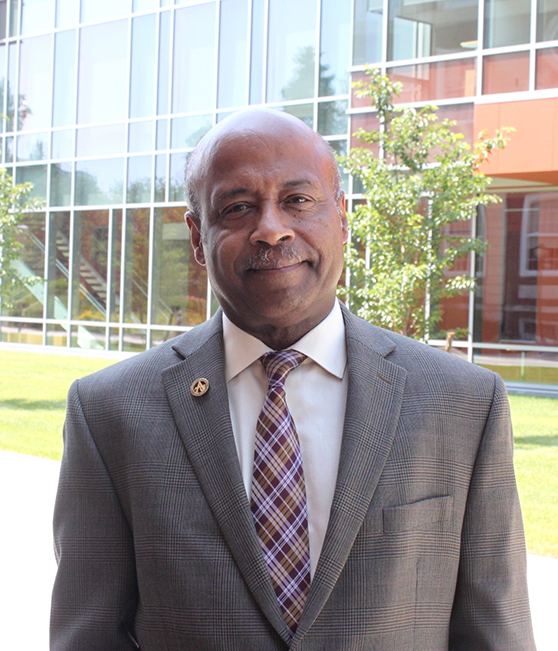Perry Greene, Ph.D., is Adelphi’s new vice president of diversity and inclusion. What prepared him for the role and how will he carry it out?

Perry Greene, Ph.D.
Chances are good that if you have been involved in a diversity initiative at Adelphi University, you know Perry Greene, Ph.D. This July, Dr. Greene steps into a brand-new position at Adelphi—vice president of diversity and inclusion. But for years before that, as associate provost, Dr. Greene spearheaded or participated in a host of diversity initiatives and committees. His new role is the culmination of a career dedicated to making a difference.
Born in Queens, New York, Dr. Greene grew up in New York City and Westchester. His parents were professional actors and he followed suit, landing one of his biggest roles at age 5 in the movie Edge of the City with Sidney Poitier, John Cassavetes and Ruby Dee. By the time he left acting at age 23, he had secured small parts in some big shows on stage and screen—TV shows including The Patty Duke Show, Guiding Light and Car 54, Where Are You?, and the musical Godspell.
Acting taught him many things. One of them was that “you don’t have to necessarily get all of your knowledge from school.” The assertion may sound contradictory coming from a career educator. But Dr. Greene explained: “The acting experiences that I had…helped me better understand the world by living in it. I think if we can incorporate that into our curriculum and teaching practices it will help our students gain knowledge in ways that are more impactful.”
A desire to make a lasting impact drove Dr. Greene toward education. He taught for years, first as a special education teacher at an elementary school in Brooklyn, and then as a high school English teacher in Harlem and on Long Island, working mostly with underserved communities.
“I learned from that experience that one of the most important mind-sets that an educator can bring to the table is trust,” he said. “It is better to think of the teacher-and-student relationship as being a partnership—a collaboration with a common goal.”
Collaboration has been important to his Adelphi career as well.
As co-chair, with Carolann Daniel, Ph.D., of the Adelphi University Diversity Committee, he helped establish a mentoring program for incoming students from underrepresented backgrounds. This fall, the committee, in conjunction with the Office of Human Resources, will launch a diversity certificate program for faculty and staff. “Our goal is to provide ways for people to understand how not only to make the University more diverse, but that ever-important area of making the University inclusive and welcoming for anyone who either works at or attends Adelphi,” Dr. Greene said.
That description could easily be applied to Dr. Greene’s new office, which President Christine M. Riordan created as an outgrowth of Momentum: The Strategic Plan for Adelphi University 2016–2021. One of the plan’s overarching goals is to “establish Adelphi as a model of diversity and inclusion.”
For Dr. Greene and his colleagues, diversity extends far beyond race and ethnicity. It encompasses the “broad array of the human experience in the people you have and the ideas and perspectives you include at the institution. But diversity won’t work unless you have inclusion—unless the people feel welcome at the table.”
Dr. Greene chaired the strategic planning work group that made recommendations for how Adelphi can become a model of diversity of inclusion. Now, as Adelphi’s vice president of diversity and inclusion, he will spearhead the initiatives and actions spelled out in the plan. Among them are to boost the retention and recruitment of diverse students, faculty and staff; to adapt teaching practices for diverse learners; to enhance the first-year experience by including subjects such as cultural competence, racism and bias; and to assess the curriculum to determine whether and how it addresses diversity and inclusion.
Dr. Greene learned from his years of teaching that “given the right tools, given the right resources, given the right educators, everybody can succeed not only in life but also academically and realize their own personal goals.” He now has the opportunity to establish the programs, policies and approaches that will make this powerful promise come true for students, faculty and staff at Adelphi.